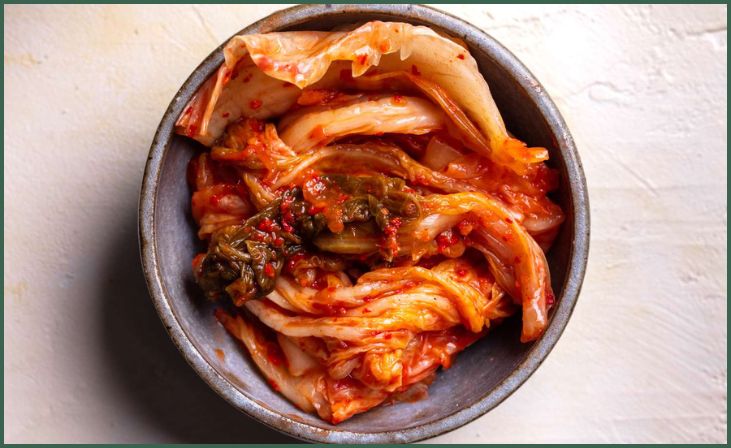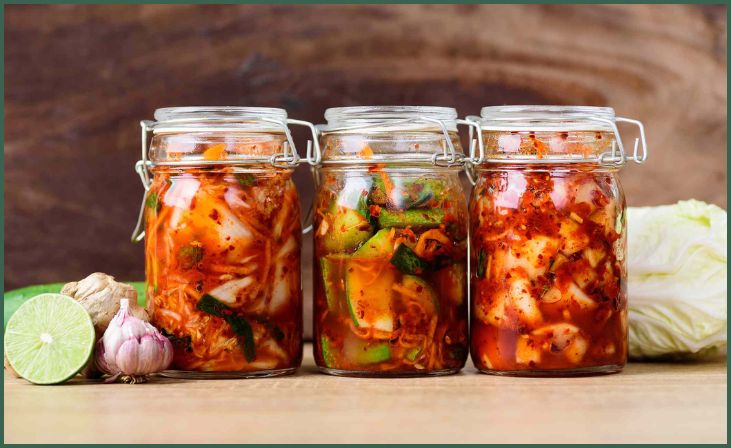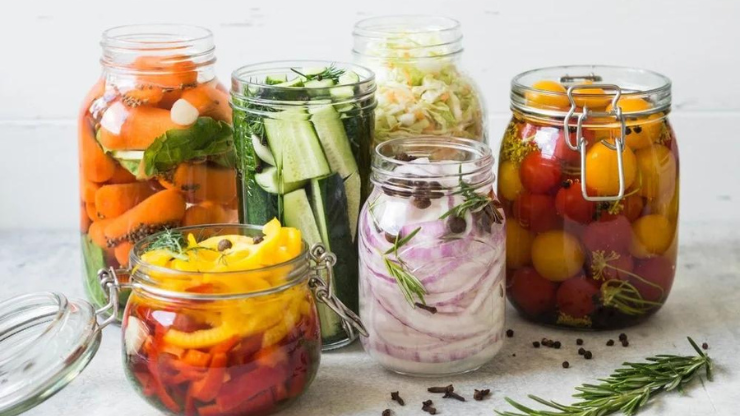Fermented foods have been cherished across cultures for centuries, not just for their unique flavors but also for their potential health benefits. You might be wondering how long can you leave your fermented foods. Well, the process of fermentation involves the breakdown of organic substances by microorganisms, resulting in tangy, flavorful, and often nutritious edibles. However, a common query arises: How long can fermented foods be left to ferment? In this comprehensive guide, we’ll delve into the art of fermentation, discussing recommended durations, influencing factors, and much more.
Table of Contents
ToggleHow Long Can Fermented Foods Be Left to Ferment?
When it comes to fermentation, timing plays a pivotal role. The duration of fermentation varies depending on factors like the type of food, ambient temperature, humidity, and personal taste preferences. Let’s explore some popular fermented foods and their ideal fermentation periods:
Here is a table of the typical fermentation times for some popular fermented foods:
| Food | Fermentation Time |
|---|---|
| Kimchi | 1-2 weeks |
| Sauerkraut | 1-2 weeks |
| Tempeh | 2-3 days |
| Yogurt | 12-24 hours |
| Kombucha | 7-10 days |
1. Yogurt

Fermented foods like yogurt can be left out for up to 2 hours at room temperature. After this time, they should be refrigerated to prevent bacterial growth and maintain their quality. Longer exposure to higher temperatures can lead to spoilage and potential health risks. It’s essential to store fermented foods properly to ensure their safety and flavor.
Also Read:- Mediterranean-Inspired Cauliflower Pickles
2. Crisp Pickles

For crisp pickles, the fermentation process typically takes 3 to 10 days at room temperature. Once the desired flavor is achieved, transfer them to the refrigerator. Properly refrigerated, fermented pickles can last several months. However, if you notice any signs of spoilage like off-putting odors or texture changes, discard them. Safe handling and storage help maintain the quality and safety of your homemade fermented pickles.
3. Kimchi

Kimchi is usually left to ferment at room temperature for 1 to 5 days, depending on your desired taste. After fermentation, store it in the refrigerator. Properly refrigerated, kimchi can last for several months, with flavors continuing to develop over time. Always ensure the kimchi is submerged in its juices and use clean utensils to avoid contamination. Regularly check for any signs of spoilage before consumption to ensure its safety and enjoyment.
4. Kombucha

Kombucha is typically fermented for 7 to 14 days, depending on your taste preference and environmental factors. After fermentation, transfer it to airtight bottles, leaving a bit of space at the top, and store it in the refrigerator. Properly refrigerated, kombucha can last for several months. Be cautious of over-fermentation, which may lead to excessive carbonation. Regularly taste and monitor its flavor and carbonation levels for the best experience.
Don't just scroll, subscribe!
BuzzTrail's unique web-stories are the cure for boredom you've been waiting for.
5. Sourdough Bread

Sourdough bread requires a fermentation period of 12 to 24 hours, during which the natural yeast and bacteria develop. After this initial rise, shape the dough and allow it to undergo a second fermentation for 1 to 2 hours. Baking follows. Properly stored, sourdough bread can last for 2-3 days at room temperature, or it can be frozen for longer shelf life. Enjoy its distinct flavor and texture within this time frame.
Factors Influencing Fermentation Times
Several factors influence the duration of fermentation for various foods. These factors are essential to consider for achieving the desired taste and quality:
1. Temperature and Humidity
The ambient temperature and humidity significantly affect fermentation. Warmer temperatures speed up the process, while cooler temperatures slow it down. Balancing these factors is key to achieving the desired results.
2. Microbial Strains

Different strains of microorganisms, such as bacteria and yeasts, are responsible for fermentation. Each strain has an optimal temperature range and fermentation time, impacting the final product’s taste and texture.
3. Salt Concentration
In vegetable fermentations, the concentration of salt in the brine affects the speed of fermentation. Higher salt levels slow down the process, allowing for longer fermentation and more complex flavors.
4. Oxygen Exposure
Oxygen exposure can hinder or alter fermentation. Some fermentations, like sourdough, benefit from limited oxygen, while others, like kombucha, require controlled exposure.
Also Read:- Spicy Pickled Green Beans
Conclusion
In the captivating world of fermented foods, timing is a crucial factor that impacts taste, texture, and quality. Whether you’re indulging in creamy yogurt, tangy kimchi, or bubbly kombucha, the duration of fermentation holds the key to culinary delight. By understanding the nuances of fermentation times and factors, you can embark on a journey of creating flavorful and nutritious treats that cater to your taste preferences. So, experiment, savor, and relish the magic of fermentation!
FAQs
Q: Can I ferment foods for too long?
Q: Can I ferment foods for too long?
A: Yes, over-fermentation can occur, leading to overly sour or mushy results. It’s essential to monitor the process and taste test regularly.
Q: Are longer fermentation times always better?
Q: Are longer fermentation times always better?
A: Not necessarily. Longer fermentation can intensify flavors, but it might not suit every palate. It’s a matter of personal preference.

